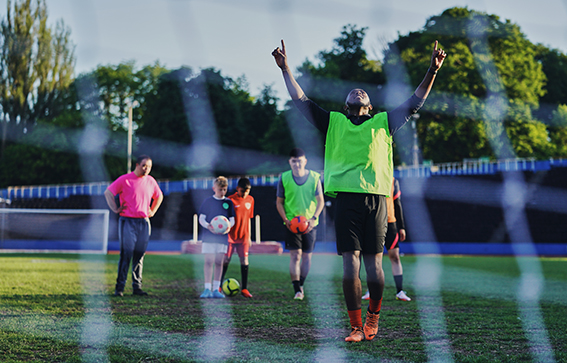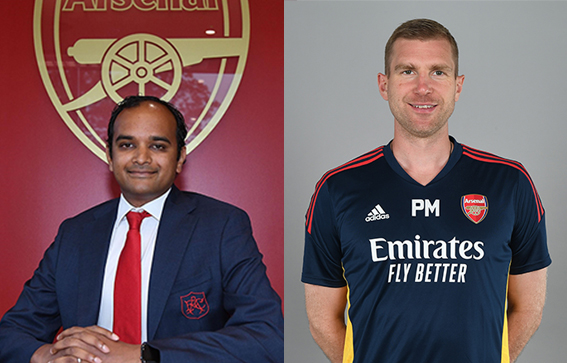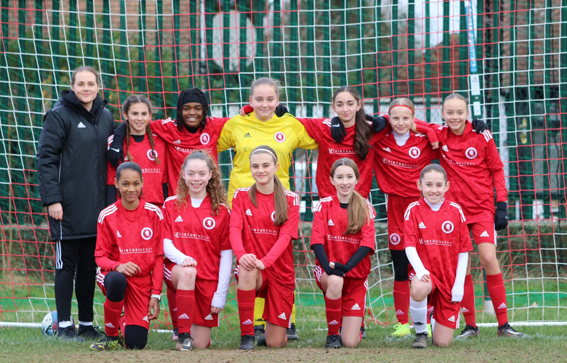The report found that the majority of fans say there is less discrimination in football now than 30 years ago or when they first became a football fan and that 73% of fans believe football has become more inclusive.
Sixty seven percent (67%) of those who experienced discrimination, say that they experience it less often now, due to the work of Kick it Out. 79% of those who’ve heard of the anti-discrimination organisation stated it has contributed to a more inclusive game.
While the data highlights the significant strides that have been taken over the past 30 years, Kick It Out believes that its work remains more relevant than ever, with chair Sanjay Bhandari stating: “Now is not the time for football to rest on its laurels.”
The Impact Report was compiled via a survey of 2,503 football fans, two-thirds of which have been fans for at least 30 years, and in-depth follow-up interviews. Eighty-five percent (85%) of those spoken to believe that more needs to be done to combat discrimination towards fans at stadiums and 87% said more needs to be done to tackle abuse towards players at stadiums, while 79% of fans think more work is needed to address discrimination at a grassroots level.
The impact report also found that:
- Kick it Out has become a leading voice in the fight against discrimination in football, with 68% of fans recognising it as an organisation or group involved in this fight.
- Seventy-four percent (74%) of fans state that their peers are more concerned about discrimination now than 30 years ago or when they first became football fans. Among fans who have heard of Kick it Out, 92% say this change is at least in part due to Kick it Out.
- Seventy percent (70%) of those surveyed believe they would probably or definitely call out a friend if they witnessed them engaging in discriminatory behaviour, although only 34% believe they would call out a stranger.
- Forty three percent (43%) of fans state that they are more likely to call out discrimination now than they were when Kick it Out was founded or when they first became a fan, with 73% of those who have heard of Kick it Out saying that they contributed to this change.
- Thirty-one percent (31%) of those asked have experienced discriminatory behaviour towards either themselves or others online, and 76% are concerned online abuse is impacting on football’s inclusivity.
Kick It Out chair Sanjay Bhandari said: “As this report demonstrates, Kick It Out has changed the face of football for the better since its inception 30 years ago.
“Fans from minority groups believe football is now safer, more inclusive and more welcoming, because of Kick It Out’s work. We also know from this report that Kick It Out has given people more confidence to call out or report discrimination, and we have seen evidence of this firsthand through our own annual reporting statistics.
“As we reach this historic milestone it gives us a moment to stop and reflect on the journey that we have been on, but we know that there is still much work to be done and this research only serves to highlight that fans overwhelmingly want more action to tackle discrimination throughout the game.
“Now is not the time for the game to rest on its laurels. We remain unwavering in our resolve to end all forms of discrimination in sport for good and need stakeholders across sport to join us on that journey.”
Kick It Out chief executive Tony Burnett added: “Whilst it’s right that we recognise the progress made over the last 30 years, we are also focussed on the future and the changes needed to make football a more welcoming place.
“We require focus, commitment and determination to drive fair representation and build an inclusive culture across football from elite level to the grassroots.
“That’s why we’re calling on football to urgently introduce a transparent system to track workforce representation data for players, coaches and managers, and senior leadership.
“We also want football to commit to targets for better representation, whether that be black managers, south Asian professional players, or black, Asian and female leaders and referees.
“Our job is far from over, and we will be working tirelessly with our football partners in the years ahead to deliver tangible change in those areas.”
Download the full Impact Report here.


